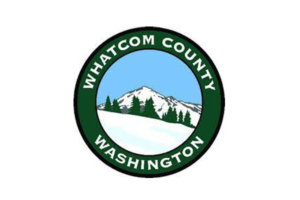A year ago, we started work on a project for the Kansas-based Sunflower Foundation, in partnership with the Rural Grocery Initiative (RGI) at Kansas State University, to understand the challenges rural grocery stores face. Of particular focus was the issue of distribution in light of the recent consolidation of two major food wholesalers in the region. We hypothesized that this merger had uniquely impacted small rural grocers and corner store markets by increasing weekly purchasing minimums, giving the stores little option other than to meet the minimum or close. What we uncovered was not only that grocery stores located in rural areas face a plethora of challenges (not least of which are increasingly smaller margins, a shrinking customer base, high energy costs, and labor shortages), they also face a new and growing threat: the dollar store.
Before we discuss how dollar stores are impacting grocers and threatening the viability of small towns (and the health of those communities), let’s pause for a moment and discuss why small grocery stores are important in the first place:
- Fresh food access: Grocery stores in rural areas provide access to fresh fruits and vegetables. Studies by the United States Department of Agriculture (USDA) show that access to fresh food increases the health of communities and lowers diet-related illnesses like heart disease and diabetes.
- Small town viability: Our research revealed that once a town loses its grocery store, other local businesses are affected as residents go to neighboring towns and cities to buy groceries, often at big box stores like Walmart. Inevitably, they will also purchase other items, creating a culture of “one big shop” that takes business away from local stores that sell hardware, lumber, office and pet supplies, etc. (The Center For Rural Affairs has put together some great resources for saving the small grocery store and its impact on small town viability.)
- The local multiplier effect: Several studies reveal that when you purchase locally, your dollar has a 1.4-2.6 multiplier effect that injects an additional $0.40 to $1.60 into the local economy for each dollar spent. When shoppers buy from their local grocery store, their dollars stay within their community, as does the sales tax paid on those items. Further boosting the local economy is the way that local businesses more actively support schools, sports teams, and other community projects.
Growing Threat to Rural Grocery Stores
For low-income families or seniors who have trouble accessing transportation, a local grocer who offers fresh produce can be a life saver in terms of buying food that supports a healthy diet. Local grocery stores are often a reflection of their community: they stock foods residents request and they source and sell locally prepared or culturally specific foods. When dollar stores move into towns with a local grocery store, it changes the landscape. Dollar stores are often national chains with no ties to the local community or incentives to give back. That means a dollar spent at the dollar store is really a dollar spent in a different city.
When a store like Dollar General moves into a rural town (defined by RGI as a town with population under 5,000), independent grocery store owners report significant percentage drops in sales. Unfortunately, many report that their businesses never recover. One store owner told us in 2017 that sales still haven’t climbed back to 2005 levels before Dollar General moved into town. Stores like Dollar General carry many of the same shelf stable items as local grocery stores but at a much cheaper price, luring customers its way.
Dollar General, a $22 billion national chain based out of Tennessee, has its own warehousing and distribution centers, two major barriers for rural grocery stores. Most of these stores have little storage space which means they rely on smaller, more frequent deliveries from their distributors which affords little opportunity for volume price discounts and adds transportation expense. While delivery minimums weren’t necessarily the biggest concern among the Kansas store owners we interviewed, getting high-quality product on time, at a decent price point and in good condition was always a challenge.
Because Dollar General doesn’t face the same limitations as independent rural stores, they are not confined to operating in towns of certain sizes that can guarantee a certain amount of foot traffic and distributor access. Their business model focuses on the profitability of the distribution center, not necessarily each store, which enables them to open stores in areas with lower foot traffic so long as it adds enough volume to keep the warehouse profitable. This can both harm and help rural towns. On the upside, we discovered dollar stores in towns of 500 people where no other independent grocery store could stay open or where the local grocery store had long since closed. This has the potential to actually improve food access in these remote places, especially with Dollar General’s recent announcement that they’ll be bringing fresh produce to select locations. However, in towns with an existing independent store, business owners will struggle to compete.
Strategizing For the Future
Ultimately, our research revealed that dollar stores, and a handful of other competition-related challenges, were more of a threat than the consolidation of wholesale distributors. Along the way, we had the opportunity to speak with rural grocery store owners who were passionate and innovative while managing to thrive amidst a competitive industry. Many spoke about the dollar store down the street impacting their business, yet finding ways to make their stores “destination” locations by carrying unique products such as special spice blends, providing in-house butchering services, or offering hot plate meals over the noon hour. Owners shared strategies they use to retain loyal customers and incentives to shop locally. One owner cited his diligent use of social media to advertise to his community while another reported that his strong emphasis on customer service, like free home delivery for the elderly and disabled, is how he builds loyalty and keeps his customers coming back.
At New Venture Advisors, we care about strengthening local food systems so that people can live healthier and more vibrant lives. While dollar stores may be filling a need in some towns that have lost its local grocer, we hope to help local grocery stores revise their business strategies to remain relevant, beneficial forces in their community and the local economy. One result of NVA’s work is the creation of the food hub assessment tool for rural grocery stores. It is configured to help small stores, looking to innovate in the face of growing competition, evaluate their capacity to operate a food hub to generate more revenue. This free tool can be used by any retailer but is especially designed for small town grocery store owners who want to diversify their business and add a revenue stream by aggregating local products.
You can learn more about the rural grocery food hub tool here or access it for free on the Toolsite.
Image: Jonathan Weiss/Shutterstock.com



